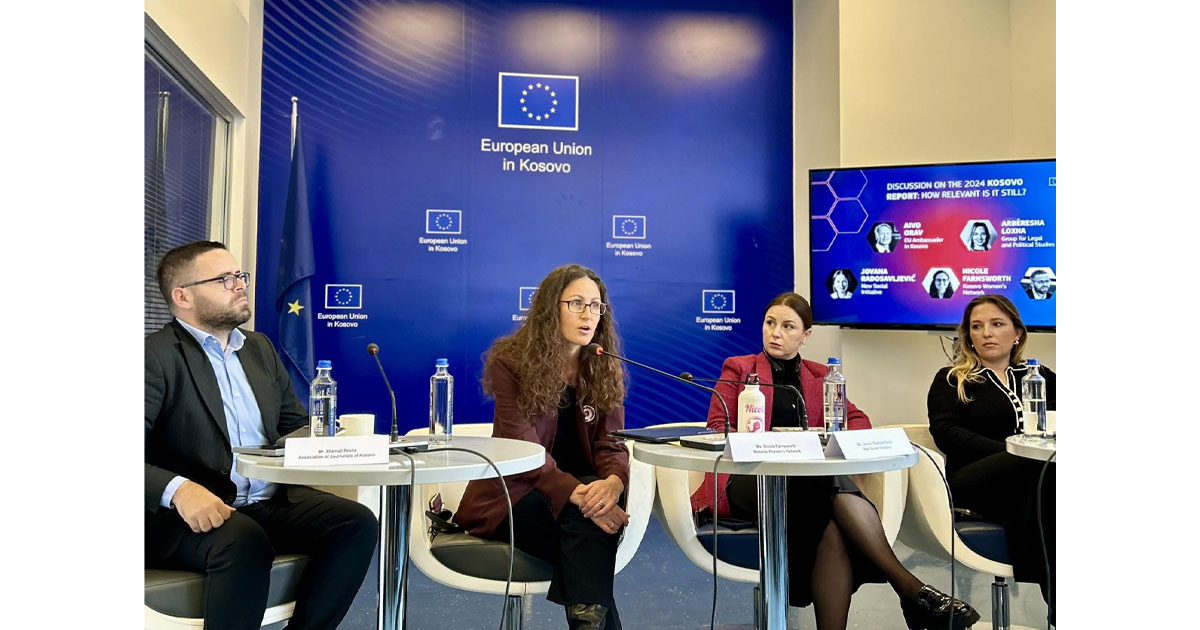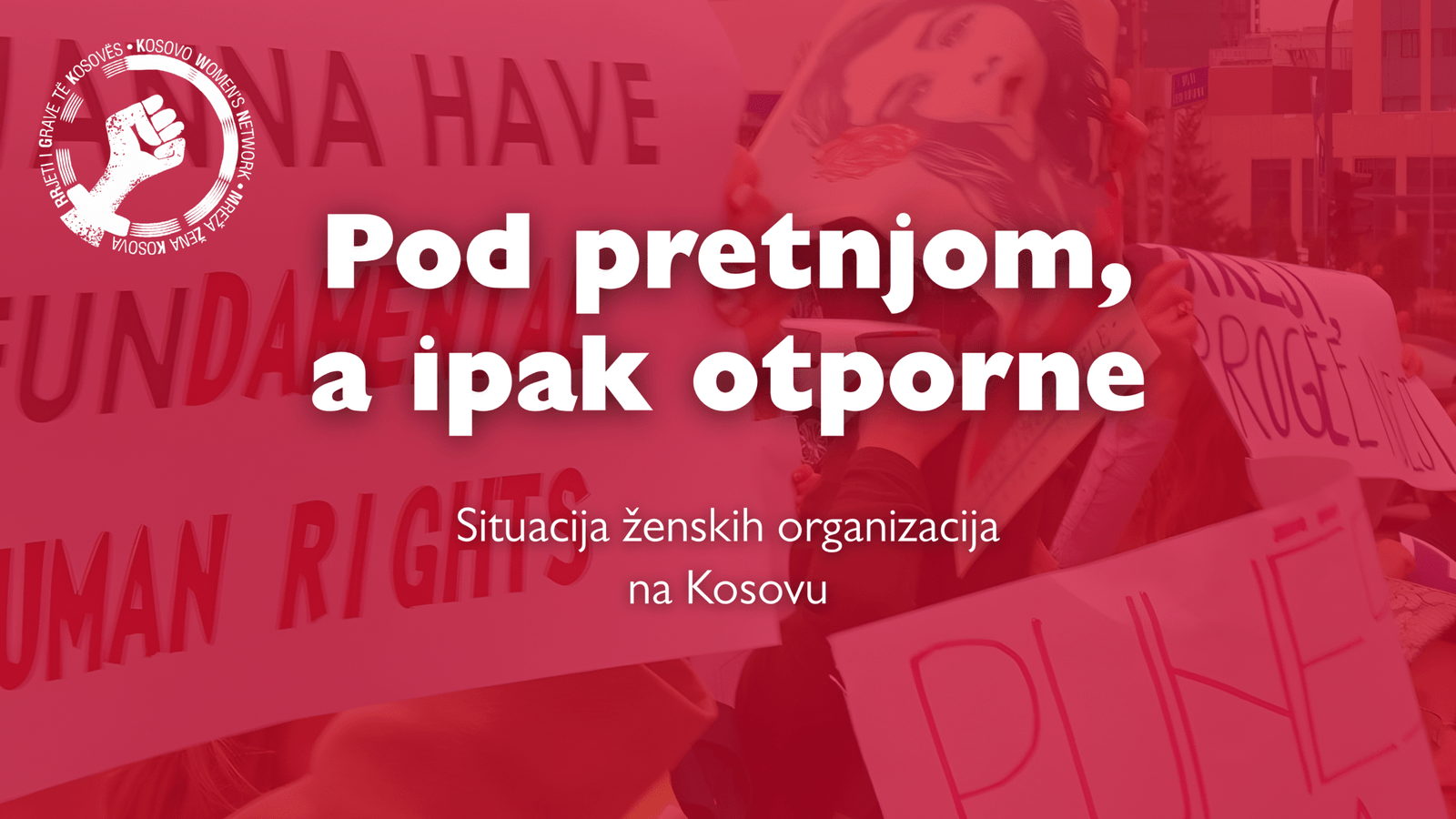Today, on 21 Nov., the Europe Union (EU) Office in Kosovo hosted a lively discussion titled “How Relevant is the Annual Report?”, referring to the recently published European Commission (EC) Kosovo 2024 Report. The event gathered EU officials and diverse civil society representatives to discuss key issues in the Report, including public administration reform, gender equality, freedom of expression, and fundamental rights. It was moderated by the EU Ambassador in Kosovo Aivo Orav.
Among the panellists was Nicole Farnsworth, Program Director and Lead Researcher at the Kosovo Women’s Network (KWN). She underscored the importance of treating gender-based violence as a Rule of Law issue within the EC Report, considering that it is one of the most widespread crimes in Kosovo. While the Government has progressed with legislation, judges continue to “reconcile” couples and state that women have “withdrawn” charges, which should not happen in criminal cases; rather, automatic (ex officio) prosecution should occur when a crime has been committed. These issues need to be treated under “Functioning of the Judiciary”, rather than the gender equality section of the EC Report.
While praising the work of dedicated journalists who carefully and respectfully cover cases of gender-based violence, Farnsworth critiqued media portals that sensationalise gender-based violence, promote victim-blaming, and enable hate speech, urging editors to take greater responsibility for fostering ethical reporting.
“We must draw a line between free speech and hate speech that enables violence and harassment against women,” she said.
Towards addressing this, KWN has called for clear definitions of cyber harassment and cyber bullying, among others, in the Criminal Code, towards aligning it with the new EU Directive on Prevention of Violence against Women. KWN also has emphasised the importance of municipalities allocating budgets for hiring at least two additional trained social workers to focus on assisting gender-based violence cases, as per the new State Protocol for Handling Cases of Sexual Violence.
Farnsworth also emphasised the importance of institutionalising gender-responsive budgeting as part of ongoing public finance reforms, towards implementing the Law on Gender Equality and international commitments to the Sustainable Development Goals (5.c.1.). She raised concerns about the lack of transparency in drafting key laws on public finance and procurement, warning that excluding civil society from these processes risks sidelining essential expertise towards incorporating gender-focused provisions.
In the end, she emphasised the importance of i) the EC Report including an intersectional perspective that considers diverse women of all ethnicities and abilities; ii) the EU and Government continuing the dialogue with diverse civil society representatives related to various chapters of the EU acquis, regardless of whether EU measures against Kosovo continue; and iii) mainstreaming gender equality throughout all chapters of the Report.
“The EU must mainstream gender equality into all chapters of progress reports and not confine it to the gender equality chapter,” she said. She referred participants to KWN’s Commentary for examples of how gender can be mainstreamed across various chapters, which was prepared together with the Kosovar Gender Studies Centre.
Farnsworth concluded her remarks by highlighting a concerning injustice faced by women who worked in the parliament, who have been protesting for weeks in front of the institution, demanding their right to receive the minimum wage, as approved by the Government. She shared that the women were forcibly removed from the parliament premises, along with their belongings yesterday. She expressed regret at not being able to join their protest due to the overlapping schedule with this panel. To show solidarity with them and their struggle, she asked all participants to stand briefly to demonstrate their solidarity with the women workers.







